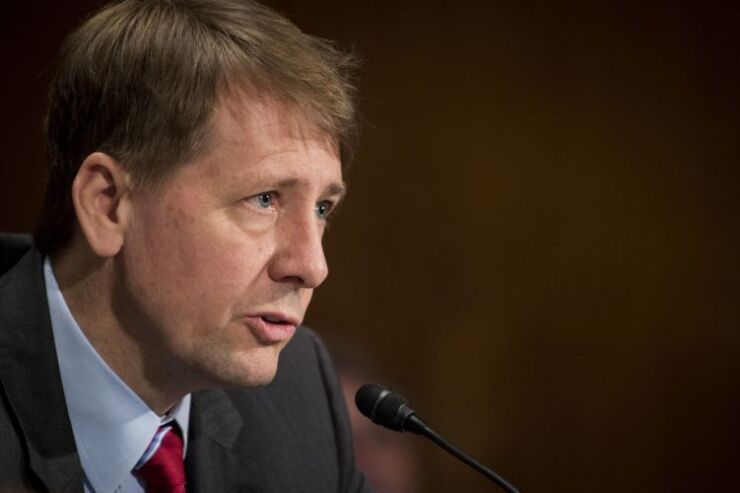Lenders could be clashing with an old nemesis soon.
Richard Cordray, 62, has been named chief operating officer of federal student aid, putting him in charge of the U.S. Department of Education’s $1.6 trillion portfolio of federal student loans.
Cordray cracked down on banks, for-profit colleges and student loan servicers during a six-year tenure as director of the Consumer Financial Protection Bureau under then-President Barack Obama. He left the CFPB to run for governor of Ohio in 2018, losing to Mike DeWine, a Republican.
The appointment is a sign that student lenders could face increased scrutiny under the Biden administration.

Cordray is an ally of Sen. Elizabeth Warren, D-Mass., the primary advocate of broad-based student loan cancellation. He will be responsible for managing the student financial assistance programs authorized under Title IV of the Higher Education Act of 1965, including grants, work-study programs and loans for students attending college or career school, the Education Department said in a press release Monday.
“Cordray has a strong track record as a dedicated public servant who can tackle big challenges and get results,” Secretary of Education Miguel Cardona said in a statement. “I am confident that under his leadership, Federal Student Aid will provide the kind of service that our students, families, and schools deserve."
In his new role, Cordray is expected to work closely with Rohit Chopra, Biden's nominee to lead the CFPB. Chopra, who is still waiting for confirmation from the Senate, served five years as the CFPB’s first student loan ombudsman.
Cordray is expected to reinvigorate the Education Department's consumer protection role. More than 300,000 borrowers have filed defense claims alleging schools defrauded them, and advocates have long urged the Education Department to provide relief.
The department has the power to issue subpoenas and levy fines on institutions of higher education. It also can issue notices of intent to terminate the eligibility of an institution or third-party provider to receive Title IV aid.
Private originations are dominated by Discover Financial Services, with a roughly $10 billion portfolio, and SLM Corp., better known as Sallie Mae, which has $21 billion in private education loans outstanding. Traditional banks have largely exited the student lending. Last year, Wells Fargo announced that it would
Meanwhile, refinancing of student loans has become a profitable
Richard Hunt, the president and CEO of the Consumer Bankers Association, said he hoped Cordray would take action to provide students and families with clear disclosures to rein in the cost of college and prevent over-borrowing.
“For too long, politicians have ignored the root causes of the federal student debt crisis, and students and families have suffered,” Hunt said.
The CFPB and the department are likely to work closely together to tackle the pressing issues of student loan debt. Federal and private student loan debt hit $1.67 trillion in 2020, according to the Federal Reserve.
Cordray has a track record of taking enforcement actions against banks, other student lenders and for-profit colleges. While at the CFPB, he ordered a $168 million
“Appointing Cordray to lead the Department of Education’s office of Federal Student Aid is a great step, showing that this administration is serious about doing what’s necessary to protect borrowers and address the student debt crisis,” said Seth Frotman, executive director of the Student Borrower Protection Center and a former assistant CFPB director and student loan ombudsman.





